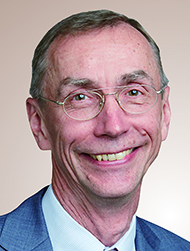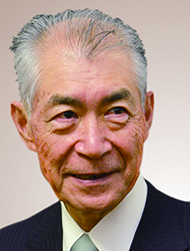The 2016 Keio Medical Science Prize Awardees
Svante Pääbo, Ph.D., Drs.

Professor of Genetics and
Evolutionary Biology
Director, MPI-EVA
Max Planck Institute for Evolutionary Anthropology
* website
http://www.eva.mpg.de/genetics/staff/paabo/index.html
Reason for Selection and His Major Achievement:
Molecular Elucidation of Human Origin
A scientific discipline that deals with the origins of human beings dates back to 1856 when a skull of "Neanderthal man" was discovered. Neanderthals disappeared in Europe 30,000 years ago. After 30 years of passionate pursuit that was both creative and innovative, Professor Pääbo succeeded in obtaining the whole genome sequence of the Neanderthals from bone remains using extremely sensitive methods to extract ancient DNA. Detailed analysis of the highly accurate whole genome sequence uncovered that Neanderthals contributed 〜2% of the genomic DNA of present-day humans by interbreeding with humans (Homo sapiens) when they came out of Africa.
Comparison of Neanderthal and present-day human genomes has identified a number of genomic regions that may have been affected by positive selection in ancestral modern humans, including genes involved in metabolism and in cognitive function.
Professor Pääbo also successfully determined the whole genome sequence of a presumably hominin-derived finger bone discovered in a cave in Denisova in Russia. The genomic sequence represented a hitherto unknown type of hominin DNA, and the novel type of hominin is now referred to as Denisovan. Professor Pääbo's pioneering work in paleogenetics represents a truly monumental achievement in the biomedical sciences and beyond, in that Professor Pääbo has shed entirely new light on one of the most captivating topics for scholars throughout the ages.
Background
- 1955
- Born in Stockholm, Sweden.
- 1975-1976
- School of Interpreters, Swedish Defense Forces.
- 1975-1981
- Studies at the Faculty of Humanities, University of Uppsala, including History of Science, Egyptology, and Russian
- 1977-1980
- Medical studies at the University of Uppsala, Sweden
- 1979-1980
- Part time research and teaching at the Department of Cell Biology, Uppsala, and the Roche Institute for Molecular Biology, Nutley, NJ, USA
- 1981-1986
- Full time research as Ph.D. student at the Department of Cell Research, University of Uppsala
- 1986
- Awarded Ph.D. degree at University of Uppsala, Sweden
- 1986-1987
- Postdoctoral research at the Institute for Molecular Biology II, University of Zürich, Switzerland
- 1987
- Short period of work at Imperial Cancer Research Fund, London, UK
- 1987-1990
- Postdoctoral research at the Department of Biochemistry, University of California, Berkeley, USA
- 1990
- Docent (habilitation) in Medical Genetics, University of Uppsala, Sweden
- 1990-1998
- Full Professor (C4) of General Biology, University of Munich, Germany
- 1997-Present
- Director, Max-Planck-Institute for Evolutionary Anthropology, Leipzig, Germany
- 1999-Present
- Honorary Professor of Genetics and Evolutionary Biology, University of Leipzig, Germany
- 2003-2015
- Guest Professor of Comparative Genomics, University of Uppsala, Sweden
- 2016-Present
- Honorary Research Fellow, Natural History Museum, London, UK
Comments from Prof. Pääbo
I am greatly honored to receive the The Keio Medical Science Prize. For more than 30 years I have worked on the retrieval of DNA from long dead organisms. It has now become possible to go back in time and study the genomes of extinct hominins, past human populations, ancient pathogens and extinct animals. Many talented collaborators both in my lab and elsewhere have helped make this dream come true. I thank them all.
Tasuku Honjo, M.D.,Ph.D.

Professor, Graduate School of Medicine and Faculty of Medicine Kyoto University
* website
http://www2.mfour.med.kyoto-u.ac.jp/
Reason for Selection and His Major Achievement:
Identification of PD-1 and Establishment of Cancer Immunotherapy Principle by PD-1 Blockade
In 1992, Dr. Tasuku Honjo first discovered PD-1 as an inducible gene on activated T-lymphocytes. Then he demonstrated that PD-1-deficient mice develop autoimmune diseases and that PD-1 inhibits T cell activation by binding to ligands of PD-1. Thus, he revealed that PD-1 is a negative regulator of immune responses. Furthermore, Dr. Honjo and his co-workers showed that anti-PD-1 and anti-PD-L1 antibodies inhibit tumor growth in mice, thus he discovered that inhibition of the immune-regulatory system is effective for anti-cancer immunotherapy. Based on his discovery, clinical trials of the human anti-PD-1 antibody nivolumab have been performed, and it has been actually proven that PD-1 blockade is effective for a number of human tumors including melanoma and lung cancer. As a result of this trial, nivolumab has been approved and introduced to the market. The blockade of the PD-1 signal, in addition to the CTLA-4 blockade, is currently referred to as “immune checkpoint therapy”. Dr. Honjo brought a paradigm shift in the field of cancer immunotherapy. He accomplished translational research from basic to clinical applications, and his discovery of the PD-1/PD-L1 system makes him well deserving of The Keio Medical Science Prize.
Background
- 1962-1966
- Medical Course, Faculty of Medicine, Kyoto University, Kyoto, Japan
- 1966
- M.D. (Kyoto University)
- 1967-1971
- Graduate School (Medical Chemistry), Kyoto University, Kyoto, Japan
- 1975
- Ph.D. (Kyoto University)
- 1971-1973
- Fellow of Carnegie Institution of Washington, Department of Embryology, Baltimore, Maryland
- 1973-1974
- Visiting Fellow and Associate, Laboratory of Molecular Genetics, National Institute of Child Health and Human Development, NIH, Bethesda, Maryland
- 1974-1979
- Assistant Professor, Department of Physiological Chemistry and Nutrition, Faculty of Medicine, University of Tokyo, Tokyo, Japan
- 1979-1984
- Professor, Department of Genetics, School of Medicine, Osaka University, Osaka, Japan
- 1984-2005
- Professor, Department of Medical Chemistry, Faculty of Medicine, Kyoto University,Kyoto, Japan
- 1988-1997
- Director, Center for Molecular Biology and Genetics, Kyoto University, Kyoto, Japa
- 1996-2000
- Dean, Faculty of Medicine, Kyoto University, Kyoto, Japan
- 1999-2004
- Science Adviser, Ministry of Education, Culture, Sports, Science and Technology (MEXT)
- 2002-2004
- Dean, Faculty of Medicine, Kyoto University
- 2004-2006
- Director, Japan Society for the Promotion of Science, Research Center for Science Systems, Tokyo, Japan
- 2005-present
- Professor, Department of Immunology and Genomic Medicine, Graduate School of Medicine, Kyoto University, Kyoto, Japan
- 2005-present
- Council Member, Science Council of Japan, Tokyo, Japan
- 2006-2012
- Executive Member, Council for Science and Technology Policy, Cabinet Office, Tokyo, Japan
- 2012-present
- Chairman, Board of Directors, Shizuoka Prefectural University Corporation, Shizuoka, Japan
- 2015-present
- President, Foundation for Biomedical Research and Innovation, Kobe, Japan
Comments from Prof. Honjo
It is my great honor to receive The Keio Medical Science Prize 2016, which has been awarded to many excellent medical scientists. I encountered the PD-1 molecule and found that PD-1 serves as a brake in the immune system. Based on the findings in animal models, the PD-1 blockade cancer therapy became available 22 years after its discovery. I deeply appreciate the active investment in basic research in Japan about 20 years ago, which made this innovative application possible.
